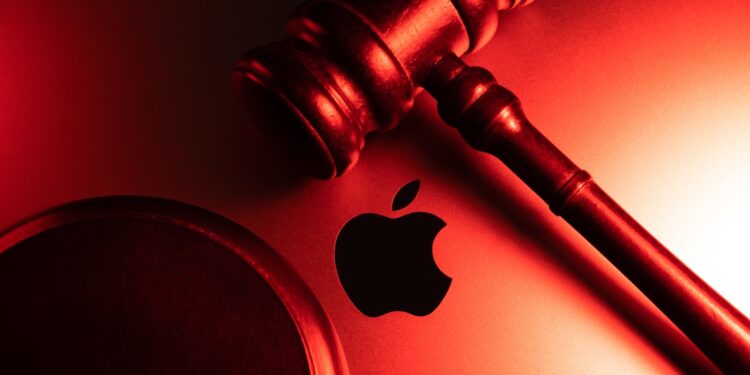Apple is back in court. This time not over patents or data protection, but over a potential monopoly. The US Department of Justice has filed an antitrust lawsuit – and Apple was unable to fend it off. An attempt to stop the proceedings failed. Now the case continues. It's about more than just legal details. The question at hand is whether Apple is actively hindering competition in the smartphone market.
For many users, the iPhone is the heart of their digital lives. This is precisely where the U.S. Department of Justice's lawsuit comes in. The accusation is that Apple has established a monopoly in the U.S. smartphone market – among other things, by excluding other providers from access to important features and services. Apple denies this. The judge in charge has now ruled that the lawsuit may proceed. This begins a lengthy process with an uncertain outcome.
Apple wanted to stop the lawsuit – without success
Apple had already filed a motion to dismiss the antitrust lawsuit in August of last year. It argued that the lawsuit was without merit because neither anticompetitive behavior nor concrete harm to consumers had been proven. Furthermore, Apple argued that the US smartphone market is highly competitive. After all, Apple competes with manufacturers like Samsung and Google. However, District Judge Julien Neals has now denied the motion. The lawsuit remains in place. This marks the beginning of the next step in the proceedings: the hearing of evidence (via Reuters ).
What the US Department of Justice accuses Apple of
The Department of Justice sees Apple as a monopolist that deliberately uses its market power to disadvantage other providers. Specifically, it addresses several issues:
- Third-party providers should have limited access to certain Apple services and features
- The Apple ecosystem is designed to keep users permanently connected
- In this way, Apple is preventing competition and innovation in the smartphone market
The core of the accusation is that Apple not only controls its own platform, but actively hinders competition by excluding other providers or placing technical hurdles in their way.
Apple's counter-position
Apple sees things differently. The company argues that it does not have market dominance. It competes with other major providers, such as Google with its Android system or Samsung with its smartphones. Apple criticizes the Justice Department's lawsuit as essentially forcing Apple to spend money to support its competitors.
What happens next
The lawsuit remains pending. Now the evidentiary hearing begins. During this phase, relevant documents are submitted by both sides, expert witnesses are heard, and depositions are collected. This can take years. Only then will a summary judgment be issued. In this step, the court examines whether the evidence gathered is sufficient to continue the case or whether it can be dismissed. If the court still fails to reach a decision, a regular trial with hearings and witnesses follows. This is not expected before 2028.
Possible impact on the Apple ecosystem
The outcome of this case could have concrete consequences for users. If the Department of Justice is successful, Apple could be required to open its system more widely in the US. This could mean, for example, making iMessage available on Android or allowing alternative app stores. This would enable more competition – which usually leads to more choice and possibly lower prices. Apple, in turn, warns that such interventions could degrade the user experience or increase security risks.
Apple prepares for a years-long legal battle
The lawsuit against Apple marks an important point in the dispute between tech companies and regulators. It demonstrates that the US government is willing to take action against market leaders when it sees competition at risk. Apple denies any wrongdoing and is now preparing for a lengthy legal battle. How this will all end remains to be seen – the only thing that is clear is that it will take time. (Image: Shutterstock / Only_NewPhoto)
- Apple postpones new features for users in the EU
- Apple adapts EU model: New rules for app sales
- Germany wants to ban DeepSeek from the App Store
- Apple vs. EU: Why iPhone users are now at a disadvantage





